
Transcription
LIFE SUPPORT
ALLIANCE
Public Safety and Fiscal Responsibility
P.O.Box 277, Rancho Cordova, CA. 95741
lifesupportalliance@gmail.com
SEPTEMBER 2018
LIFER-LINE
VOL. 9 ISSUE 9
THE NEWSLETTER OF LIFE SUPPORT ALLIANCE (C) LSA, 2018
POLICY
PROCESS
PROCEDURE
CODIFYING AND CLARIFYING PTA AND AR REQUIREMENTS
For the past two months BPH administration has been working to rectify an oversight in the board's Administrative Review and Petition to Advance process process that was exploited by the district attorneys' organizations and victims' groups in an effort to derail these processes that allow lifers denied parole to come back for hearings earlier than the denial length stated at their hearings. While the DAs bashed, berated and belittled those in prison reform who, a few years ago following the creation of the FAD, used a similar oversight to challenge that process, they showed no hesitation, hindsight or humility in self-righteously claiming the board to be promulgating an underground regulation regarding AR and PTAs.
A brief and perfunctory recap of the situation is this: in early August the Orange County Superior Court ruled in Rackauckas v State of California that the board, in not officially and formally giving Deputy Commissioners the duty and authority to make decisions to advance parole hearings under the PTA and AR process, had thus created an underground regulation. The DAs, in bringing this issue to the court, decided to pad their legal argument by focusing on a particular inmate's case, enfolding the victims' family in that case, making the claim that to advance hearings is to inflict 'harm' on those victims.
To support that argument, they prevailed on not only the victims' in the initial case under scrutiny in the suit, but also to victims' groups far and wide. While the OC Superior Court in its ruling did not outline what 'harm' the victims would suffer, victims' groups representatives, appeared at the August BPH monthly meeting, to sanctimoniously declare simply knowing about an advanced hearing was harmful to them. The various organizations and individuals also took umbrage at a statement contained in the board's reply to that charge that any harm to victims via advanced hearings was 'self-inflicted' harm, as there is no requirement that any victim appear in person at a parole hearing in order to have their concerns heard and considered, a position Harriet Solarno of Crime Victims United found 'deeply offensive'.
As a solution to the issue of legality of the hearing advancement process BPH Executive Director Jennifer Shaffer "recommended that the Board vote to assign to deputy commissioners the duty of making decisions concerning the advancement of parole hearing dates." And to protect those decisions already handed down in advanced decisions, to ratify all previous advancement decisions made by a deputy commissioner.
When the floor opened for public comment of the proposal a veritable parade of DA representatives and agents of various victims' groups spoke in opposition; six Deputy DAs alone opposed the idea of the board assigning the DCs the ability to make advancement decisions, along with Solarno and affected comments read into the record from those not present. Amazingly, the only support for the BPH, for the idea of DCs making those decisions, indeed, making those advancement decisions at all, came from a prisoner advocacy group; that's right, us. Life Support Alliance.
The Board did, in fact, approve assigning deputy commissioners the duty to make decisions to advance hearing dates under and ratified all previous decisions made by a deputy commissioner to advance hearing dates. Shaffer then reported that the Board would soon draft regulations outlining AR and PTA procedures.
And, true to her word, at the September business meeting in Sacramento, the BPH was presented, considered and passed regulations outlining both the process and requirements for AR and PTA consideration and approval. While the process and requirements are essentially the same as those under which these processes have been performed for the last several years, the approved regs, now submitted to the Office of Administrative Law for review and approval, do provide more clarity and specificity regarding what DCs should be looking for to approve an advancement in a hearing.
So, the process for Administrative Review and Petition to Advance hearing dates continues, now in the process of being fully in line with legal administrative process and few changes, but more clarity. The regs do clearly lay out criteria for denial of a hearing advancement, as well as timelines for replies and an appeal process when a PTA is denied. While too long to reproduce in Lifer-Line, any prisoner wishing to obtain a copy of the regs can write us, include a stamp or SASE and we'll provide a copy of the complete 8-page document. Send your request to PO Box 277, Rancho Cordova, Ca., 95741, specify "PTA REGS" on the envelope.
In an interesting sidebar to the process, following LSA's comments at the August BPH meeting in support of the BPH's process and policy, several of the DAs in attendance were apparently piqued by our comments (which, we admit, included a reference to DAs continually seeking vengeance, with little regard to rehabilitation or change). They appeared quite surprised, and asked us if we really thought DAs were vindictive and vengeful?
Well, yeah.
FINAL (almost) BILL RECAP OF 2017-18 SESSION
With the 2017-18 California legislative session now wrapped up, insofar as passage of bills is concerned, herewith is a recap of those bills most applicable to lifers and long-tern inmates' prospects for parole, resentencing and day to day prison life. In reporting on the following bills, we note two of the most important to lifers, SB 1391 and SB 1437 have, as of press time (September 29), have not been signed by Governor Brown. Which is not to say they will not be signed by September 30, as this Governor signs bills daily, even on weekends. Even if not signed, unless Brown vetoes the bills, they will still go into effect.
Perhaps a brief civic lesson is in order first.
Under California law, any bill passed by the legislature by August 31 of any legislative year, goes to the Governor for action. By September 30 the sitting Governor must 1) sign the bill, 2) veto the bill or 3) take no action. If the Governor chooses to veto, or reject the bill, if the legislature can muster 2/3 of their membership to vote yes, that vote can override the veto and the bill will become law.
Once the Governor signs legislation, it will become effective on January 1, 2019. Similarly, if he chooses to simply ignore the bill, and neither signs nor vetoes the legislation, it will become law on January 1.
So, while SB 1391 and 1437 have both passed the legislature and are, as of September 29, languishing on the Governor's desk, the chances of their implementation on January 1 remains likely. Staff in the offices of both bills' authors say they have no reason to believe Brown will veto either bill.
For those bills that have not reached the potential signature stage, that is, they are still languishing in various committees in one or the other house of the legislature, that, too is reported. Such bills will not likely be considered prior to the legislature reconvening on December 3.
The recap follows:
AB 665 - would authorize any person who was sentenced for a felony conviction prior to January 1, 2015, and who is, or was, a member of the United States military and who may be suffering from sexual trauma, traumatic brain injury, post-traumatic stress disorder, substance abuse, or mental health problems as a result of his or her military service, to petition for a recall of sentence under specified conditions. The bill would require the court to determine whether the person satisfies the specified criteria and authorizes the court, in its discretion, to resentence the person following a resentencing hearing. This bill is currently stalled in the suspense file of the Assembly Appropriations Committee.
AB 1940 - This bill would have created an earned discharge program to allow those on parole to earn credits toward their parole discharge date through accomplishment of various educational, vocational and public service activities. Lifers, subject to possible lifetime parole, could earn credits toward their discharge review date via the same activities. Parolees would have been able to earn as much as 12 months credit toward their discharge or discharge review date in a 12-month period, as well as an increase in the distance they are allowed to travel without written permission from their parole agent. This bill failed, unable to make it out of the Assembly Public Safety Committee on a tie vote.
AB 2550 - prevents male officers from performing pat down searches of female inmates or entering areas where female inmates are likely to be undressed, unless there is imminent danger of harm to the inmate or others, or unless a female officer is not available. The bill passed and was signed into law by the Governor on August 20. It will be effective January 1.
SB 1242 - This would add language requiring additional conditions to granting parole be codified, including demonstration of remorse and insight, reasonable time free of disciplinary, realistic post release plans, all of which are already part of parole consideration, though not in legal terms. In some way this bill impinges on the discretion of the BPH yet gives no specific standards/guidelines. More importantly, ad the real purpose of the bill, would be to exclude from YOPH consideration those prisoners whose victims was a peace officer or former peace officers.
This bill has been referred to the Assembly Committee on Public Safety in June, where it remains stalled. Action possible when the legislature reconvenes.
SB 1391 - This bill amends Prop. 57, as allowed in the language and consistent with and in furtherance of the intent that proposition regarding the authority of the District Attorney relative to juvenile offenders. The DA is currently allowed to transfer a minor from juvenile court to an adult court cases where the minor is alleged to have committed a felony when he or she was 16 years of age or older or in a case in which a specific offense is alleged to have been committed by a minor when he or she was 14 or 15 years of age. This bill repealed the authority of a district attorney to make a motion to transfer a minor from juvenile court to adult court for those minors alleged to have committed specified serious offenses when he or she was 14 or 15 year of age.
This bill has been passed the legislature and was sent to the Governor on September 5. It awaits his signature as of press time.
SB 1437 --changed the felony murder rule, through legal language that would removes malice from consideration in a crime unless the individual charged personally committed the homicidal act, acted with premeditated intent to aid and abet that act wherein death occurred or the person was a major participant in the underlying felony and acted in reckless indifference to human life. It would also be retrospective, providing a method of resentencing those convicted of first or second-degree murder under the felony murder rule or the natural and probably consequences doctrine.
This bill passed and was sent to the Governor on September 7. It awaits his signature, as of press time.
LIFE SUPPORT ALLIANCE
Public Safety and Fiscal Responsibility
P.O. Box 277, Rancho Cordova, CA. 95741
lifesupportalliance@gmail.com
MAY 2019 LIFER-LINE VOL. 10 ISSUE 5
THE NEWSLETTER OF LIFE SUPPORT ALLIANCE LSA, 2019
[an image of a bar graph with an arrow on top]
BPH SIGNIFICANT EVENTS IN 2018
It was a busy year for the BPH, all reported in the Report of Significant Events, 2018, released recently. This is the fifth year the board has released this report and each year more information is included, making the workings and the results of the Board's activities more transparent.
As an example, in 2018 the board scheduled, 5,226 parole hearings, but only about 56% of that number actually went to completion, with a decision announced. The remaining scheduled hearings were not held, due to postponements, simulations, waivers, cancellations, continuances. Of course, the big question is--what was the all-important, all-revealing, all-telling grant rate?
Short answer: 39%. Of the hearings actually held in 2018, 39% of the time, for 1,136 prisoners, the commissioners said granted. In deeper detail, 25% of those grant (285) were given at an inmate's initial hearing, 69 (6%) were for women, 698(61%) were for YOPH inmates and 234 (21%) for elderly parole inmates. We should note, there were a few inmates, actual numbers not available, who were considered under both guidelines of YOPH and elderly parole.
If you were a YOPH inmate in 2018, you had a 40% chance o being granted parole and if you went in under consideration of elderly parole factors, your changes were e38%, overall. Interestingly, but perhaps not surprisingly there was a difference in the success rate for indeterminate Sentence LEngth inmates (ISL: lifers) and those with a Determinate Sentence Length (DSL; long term but definite number of years) Youth offenders with life sentences had a significantly better success rate at hearings in relation to DSL inmates--43% to 17%. For those under elderly parole guidelines, the difference in the success rate for ISL inmates (lifers) when compared to determinate inmates was substantial. Lifers were successful at parole hearings 30% of the time, while those with long-term determinate terms, heard under elderly parole proceedings, were granted a mere 5% of the time. The difference may be in the nature of crimes under consideration, but no firm empirical evidence is available.
And for those inmates denied parole and contemplating ways to advance their next hearing date--take heart. If you received a 3-year denial and your hearing is advanced under the automatic Administrative Review process, as happened 82% of the time for those reviewed, your chances of achieving a grant at that advanced hearing was 58%.
And for those who received a longer than 3-year denial and filed a PTA in 2018, the news was nearly as good. Some 72% of PTA requests were granted and 40% of those advanced hearings were successful in achieving a grant at the advanced hearing.
That's the good news for lifers. Now for the not-so-great news. Reconsideration hearings, those held for former prisoners released under the lifer parole process who were so unsuccessful on parole as to find themselves back in prison with their life sentence reinstated, were up. In 2018 parole panels considered a second, second chance for these individuals 108 times, a pretty healthy jump from the 83 such hearings the previous year. Almost half that number (48) were initial reconsideration hearings and while we don't know the number of times grants (re-grants?) were made, we can get an idea from looking at the numbers from previous years.
If a lifer is denied at a parole reconsideration hearing, s/he will receive a parole hearing every year: on that basis, knowing there were 83 reconsideration hearings in 2017 and 0 of the reconsideration hearings in 2018 were subsequent, we can deduce that in 2017 only 23 inmates were successful in re-achieving parole, roughly 27%. With the rate of such hearings going up, there is little reason to conclude that a significantly larger number of re-offending lifers found favor, again, with the board.
Also troubling was the report of an uptick in re-offenses by lifers paroled over the last 3 reporting periods. The 2016 CDCR Outcomes Report looked at 349 lifers, released via parole in the 2011-12 fiscal year. In that report the department noted 11 individuals, about 3.2%, had been convicted of a crime during the 3-year follow up period after their release reported on in the 2016 report. Of some relief is that only one of those re-incarcerated individuals was convicted of a felony against a person.
The 2018 Outcomes Report found that of the 510 ISL inmates released via parole in fiscal year 2013-14, about the same percentage (3.1%) of those parolees had been convicted of an additional offense during the reporting period, but 3, an increase, had committed a felony against a person. Be careful out there.
Interestingly, those prisoner who came under board consideration for the Determinately Sentenced Non-Violent parole review process didn't fare as well, release wise, than did those who had an in-person parole hearing. The non-violent review process is entirely a paper review process, with inmates who may qualify screened by CDCR Classification initially before being referred to eh BPH for an additional jurisdictional review before being considered on merits and for actual release. About 13% of the over 5,000 inmates initially referred to the BPH were screen out by the board, which then considered a little over 4,500 on the merits of their case. Release was approved, however, for only 23% of those. Those denied release via this process will receive another review in one year.
The 2018 report also noted the training sessions conducted by the BPH, both for commissioners and the clinicians of the Forensic Assessment Divison. Commissioners and Deputy Commissioners received some 42 training sessions during the year, often as part of the BPG monthly Executive Board meetings. These sessions ranging from 30 minutes to 2 hours, covered a variety of issues from transitional housing, mental health services, transgender issues, VNOK procedures, CRA matters... and even what Life Support Alliance is about and up to.
The psychologists of the FAD also received training in 2018, though, it appears, less extensive, both in time and variety. Dr. Kusai reported the FAD clinicians receive ''training during routine staff meetings throughout the year,' and reviewed a 'variety of published research' via a research database. The clinicians also received additional training, some of it actually from outside (out of FAD that is) experts. Of the eleven training sessions listed, 5 were conducted by individuals not FAD affiliated, though none were from outside CDCR. The remaining, the majority, of the FAD training was presented by members of the FAD itself. We reserve comment.
CRICKETS ON COMMUTATION APPLICATION?
During the last few months of former Governor Brown's administration the race was literally on to get commutation applications to his desk before he walked out those big double doors for the last time. And while many received relief form Brown, many are still waiting for action, advice, any word on applications sent to the Governor's office but not yet reconciled.
Recently, now-Governor Newsom's website updated the process and provided the following information:
"If you submitted accommodation application to a prior governor and did not receive notice of a commutation grant, your application is deemed closed. If you submitted a commutation application in it, you may submit a Application for Clemency. To re-apply for a commutation: Submit a completed Reapplication for Clemency Form (1 page). Do not re-submit your original application or other documents unless requested to do so by the Governor's Office."
The website further details the commutation process thusly:
COMMUTATIONS
People who have been convicted of a crime and are currently serving their sentence in California may apply for a commutation (reduction of sentence).
In deciding whether to grant a commutation, the Governor's Office will carefully review each commutation application and consider:
* the impact of a commutation on the community, including whether the grant is consistent with public safety and in the interests of justice;
* the age and circumstances of the offense and the sentence imposed, and the age of the applicant at the time;
* the applicant's self-development and conduct since the offense, including whether the applicant has made use of available rehabilitative programs and has identified and addressed treatment needs;
* the applicant's need for a commutation; and
* the applicant's plans upon release from custody
Applicants will be notified when the Governor takes action on a commutation application
INVESTIGATION & REVIEW
The Board of Parole Hearings, a division of the California Department of Corrections and Rehabilitation, investigates commutation applications. The investigation will include a review of the applicant's criminal history records, court and police records, and records and information about the applicant's period of incarceration from the applicant's C-File and other sources.
We reprint this information, direct from Governor Newsom's website, because we receive so many questions form lifers and LWOPs about commutation applications and because CDCR itself and counselors in particular, seen to have so little information to provide to inmates. The one-page reapplication form referenced above is available on the Governor's website as well.
Ask your counselor for it (surely CDCR has access to the web), ask your family to print it and mail to you, or, as a last resort only please, write LSA, send us a SASE and we'll forward to you.
PROP. 57 CREDITS UPDATE
CDCR has announced that as of May 1 Prop. 57 credits will be expanded in the following manner:
Educational Merit credits will increase from 90 to 180 days for high school diploma or equivalency approved by CDCR. This could apply retroactively to those who submitted requests for such credits on or after August 1, 2017
Rehabilitative Achievement Credits (RAC) will increase from 7 days to 10 days for credit for completion of 52 hours of programming in a 12-month period, up to a total of 40 days credit for 208 hours of programming in a single year. These will be awarded retroactively to Aug. 1, 2017, to allow those who had excess programming hours in the past to receive credit for that work.
Good conduct, Milestone Completion and Extraordinary Conduct credits remain unchanged. On April 2, 2019 the department began restoring credit to those who were disciplinary free for the requisite length of time following a rules violation -- those credits will be restored automatically. The memo outlining these changes also notes Correctional Counselors should have more information. We hope.
BPH UP FOR NEW LEGAL COUNSEL?
Along with the assurance of 2 new parole commissioners early this summer, and the need to reappoint or appoint new commissioners to 5 spots it appears the BPH may now also see a new Chief Legal Counsel named. In late May Gov. Newsom's office announced Jennifer Neill, who has been Chief Legal Counsel at the BPH since 2016 will be joining the office of Legal Affairs at CDCR. As of press time, no replacement for Neill had been announced.
And, as of the time we got o print, no new commissioners nor appointments of sitting commissioners have been announced. Up for possible reappointment are Commissioners Anderson, LaBahn, Grounds, Cassady and Ruff. These commissioners must be reappointed, or their seats filled by other candidates, by July 2019.
WHERE ARE YOU?
Many of our readers receive Lifer-Line through via our mail tree, where volunteers will 'adopt' an inmate who doesn't have a friend or family member in the outside to receive the newsletter via email to print and mail to them. And we're happy to provide this service to those more than 400 in-need inmates, and grateful to our many volunteers who give up their time and actual finances to provide this service (some of our volunteers mail to 20 or more inmates--at roughly 50+ cents per letter for postage and supplies, that can add up). Which brings us to the current point.
We often receive newsletters returned from various institutions, when images have been transferred from that location. It happens, and we know your first priority when transferred isn't to let us know you're at a new spot, but come on guys. We're providing you with a free service; the least you can do is let us know where to send that service without wasting OUR resources. So, here's the deal. If we receive 2 newsletters returned because an inmate has moved and said inmate hasn't bothered to let us know his new home--we'll remove that individual from the mail list. We have a waiting list for inclusion on the mail tree, so there will be someone ready to receive, and appreciative of, that newsletter. Two issues mean 2 months--surely in that time you'll have 5 minutes and a stamp to let us know where to send your FREE newsletter.
NOW MORE THAN EVER
We've frequently run survey forms in the newsletters; decision surveys, CRA surveys, and, most often, attorney performance surveys. And while our mantra has always been and remains 'no attorney can get you a date if you aren't ready and no attorney can lose you a date if you are ready,' attorney performance helps and is important. Thus, the surveys.
We don't discriminate, we ask for prisoner ratings on both private attorneys and those appointed by the state, and we've found great examples, as well as poor ones, in both categories. If you've been to a hearing within the last couple of years and haven't responded to our attorney survey in that time, we'd like you to rethink that decision.
BPH has announced it will be modifying the manner in which attorneys for the state appointed list are selected, and performance will now be a real consideration of that selection. And where can they get reports of that performance? Well, to our mind, with the end users and that would be you, the prisoner.
And yes, you can write BPH with your thoughts and concerns, and info act we urge you to do so. But we'd also ask that you respond to the following survey, as we've got several years of survey results we'd like to update and improve, all with an idea to providing this compendium of data to the BPH.
Be real and be realistic. consider what we're looking for here--was your attorney a help to you, or just a body sitting at the same side fo the table? Did s/he give you support and advice on the day of the hearing for seem more interested in breaking for lunch. Did they know your name? Return your documents? Go above and beyond, or just barely make the cut? Inquiring minds (ours) want to know. And now is the time.
ATTORNEY SURVEY
Life Support Alliance is seeking information on the performance and reliability of state appointed attorneys in the lifer parole hearing process. Please fill out the form below in as much detail as possible, use extra sheets if needed. Please include your name, CDC number and date of hearing, as this will allow us to request and review actual transcripts; your name will be kept confidential if you desire. Details and facts are vital; simple yes or no answers are not particularly helpful. Mail to PO Box 277, Rancho Cordova, CA. 95741. we appreciate your help in addressing these issues.
NAME*_________________
CDC #*_______________________
HEARING DATE*______________'
COMMISIONER _________________________
GRANTED/DENIED (YRS) _______________
INITIAL/SUBSEQUENT (how many) _____________
EVER FOUND SUITABLE/WHEN _________________
ATTORNY NAME: private/state* _________________________
PRISON___________________
MET MEET BEFORE HRG (# of times, length)___________________
HOW FAR IN ADVANCE OF HRG? ____________________
TIME SPENT CONSULTING _____________
OBJECCT TO PYSCH EVAL?____________________
LANGUAGE PROBLEMS?________________
WAS ATTORNEY PREPARED?_____________
DID S/HE BRING ANY DOCS NEEDED? ____________
SUGGEST STIP/WAIVE?_________________
COMMENTS:
(Please provide details regarding attorney's performance, or lack of, including interaction with parole panel and/or any DAs and VNOK present. Was attorney attentive during pre-hearing meeting and hearing, did s/he provide support/advice to you? Was s/he knowledgeable re: your case and/or parole process? Had s/he read your C-file before meeting with you?)
*required
Reply: jj8r
[image of native American man]
Warriors are not what you think of as warriors.
The warrior is not someone who fights,
because no one has the right to take another life.
The warrior, for us, is one who sacrifices
himself for the good of others
His task is to take care of the elderly,
the defenseless, those who cannot
provide for themselves,
and above all, the children,
the future of humanity
-Sitting Bull (c. 1831-1890)
Hunkpapa Lakota
HTTP://nativeamericanencyclopedia.com
[image of soldier holding the upside down American flags with the words: " THERE IS NO FALG LARGE ENOUGH TO COVER THE SHAME OF KILLING INNOCENT PEOPLE"]
Many U.S. soldiers were traumatized by the experience o killing innocent civilians.
MORAL AUTHORITY DEMANDS ACTION
"The hottest places in hell are reserved for those who, in times of great moral crisis, maintain their neutrality." Dante Alighieri, Inferno
"We must learn that passively to accept an unjust system is to cooperate with that system, and thereby to become a participant in its evil."
Hello Cal. 27 June 19
I hope these words find you and our audience all doing as well as can be. As for me, things are as entertaining as ever! Big changes are happening in Penology, as the tax-paying public is finally taking responsibility to hold the injustice system to account for rehabilitating errant wards. It's about time, isn't it?
Now here is a subject to consider in the social contract theory you'd mentioned. Whatever will happen with the Leviathan justice system which employs so many suppressive agents? Weren't they all subjugated by job security in this draconian police state? Wasn't that their "social contract" in the us-and-them paradigm? And now... I fear what they'll do to maintain their job security, while ivory tower engineers change the rules.
It's only taken 80 years for the dystopian psych industry to recover from their Machiavellian strangers, and finally establish their ilk as the de facto state religion here now. It's been said that "Those who do not remember history are doomed to repeat it," so I suggest reading: PSYCHIATRIST * THE MEN BEHIND HITLER: THE ARCHITECTS OF HORROR by Dr. Thomas Roder. Volker Rubillus * Anthony Burwell (15BN: 0 9648909-1-7) The English Edition, from: Freedom Publishing, 6331 Hollywood Blvd., L.A., CA 90028
Its easy for me to prognosticate how this religious paradigm shift will maintain their us-and-them games, while making the criminal justice system of the past seem barbaric in comparison. For a preview just consider the history lessons from citizens commission on human rights www.cchr.org
And then I dare you read: CLONING OF THE AMERICAN MIND - ERADICATING MORALITY THROUGH EDUCATION by B.K. Eakman (ISBN: 1-563-84-147-9) from: Huntington House Publishers PO Box 53788 Lafayette, LA 70505.
Isn't it peculiar that the word Mentor, derives from 1: a friend of Odysseus entrusted with the education of Odysseus' son Telemachus? The fifth column religion of psychiatry orchestrating social services, helping reform Homo Sapiens, is easier to understand when religion is defined: [fr. L. religious supernatural constraint]. with emphasis upon the supernatural 1: of or relating to an order of existence beyond the visible observable universe: esp: of relating to God, demigod, spirit, or devil, departing from what is usual or normal esp. so as to appear to transcend the laws of nature.
Before you judge others or claim any absolute truth, consider that...
...you can see less than 1% of the electromagnetic spectrum and hear less than 1% of the acoustic spectrum. As you read this, you are traveling at 220 kilometers per second across the galaxy. 90% of the cells in your body carry their own microbial DNA and are not "you". The atoms in your body are 99.9999999999999999% empty space and none of them are the ones you were born with, but they all originated in the belly of a star. Human beings have 46 chromosomes, 2 less than the common potato. The existence of the rainbow depends on the conical photoreceptors in your eyes: to animals without cones, the rainbow does not exist. So you don't just look at a rainbow, you create it. This is pretty amazing, especially considering that all the beautiful colors you see represent less than 1% of the electromagnetic spectrum.
You see; As a Man Thinketh, he perceives. Though is boss! Alas, pied piper merchants of fear nurture hoosphers with their overwhelming arbitrariness: Don't Think! Obey!
Yes, so very few merit the atonement (at-one-ment) of shalom. But I KNOW it very well - in very brief spells of clarity 0 which is much much better than never having known it at all. Exiled for life as a villain, I know better! Phinehas, of Bible fame (Numbers 25:11/12) had merited the "covenant of shalom." And of course the name Phinehas is defined as meaning: mouth fo a serpent - The serpent: Nachash, which of Genesis 3 fame, simply means: to hiss, i.e. whisper; generally, to prognosticate, learn by experience, diligently observe.
As you wrote; "how we respond (to injustices) can be vital for our personal well-being and moral character." Moral Authority Demands Action! The word that merits shalom is INTEGRITY [fr. L. integer- entire] 3: the quality or state of being complete or undivided: COMPLETENESS.
Trying to change "external" conditions - rational? you ask? It's our nature to be CAUSE of external conditions! Alas, the irrational arbitrariness supplanting Free Will produced mental illness and quite naturally CAUSE rebellion. Which, by the way is what the name Mary means, the mother of salvation: Mary, of Hebrew origin; Miriam/Merie: bitterness i.e. (fig) rebellion.
The alterisness of arbitrary authority must be challenged in order to understand freedom. And in that freedom, responsibility TO BE or not to be, as the case is. DO as Thou Will, is the whole of the law, and, fare thee well.
Whispers
Other posts by this author
|
2023 may 31

|
2023 apr 5

|
2023 mar 19

|
2023 mar 5

|
2023 mar 5

|
2023 mar 5

|
More... |
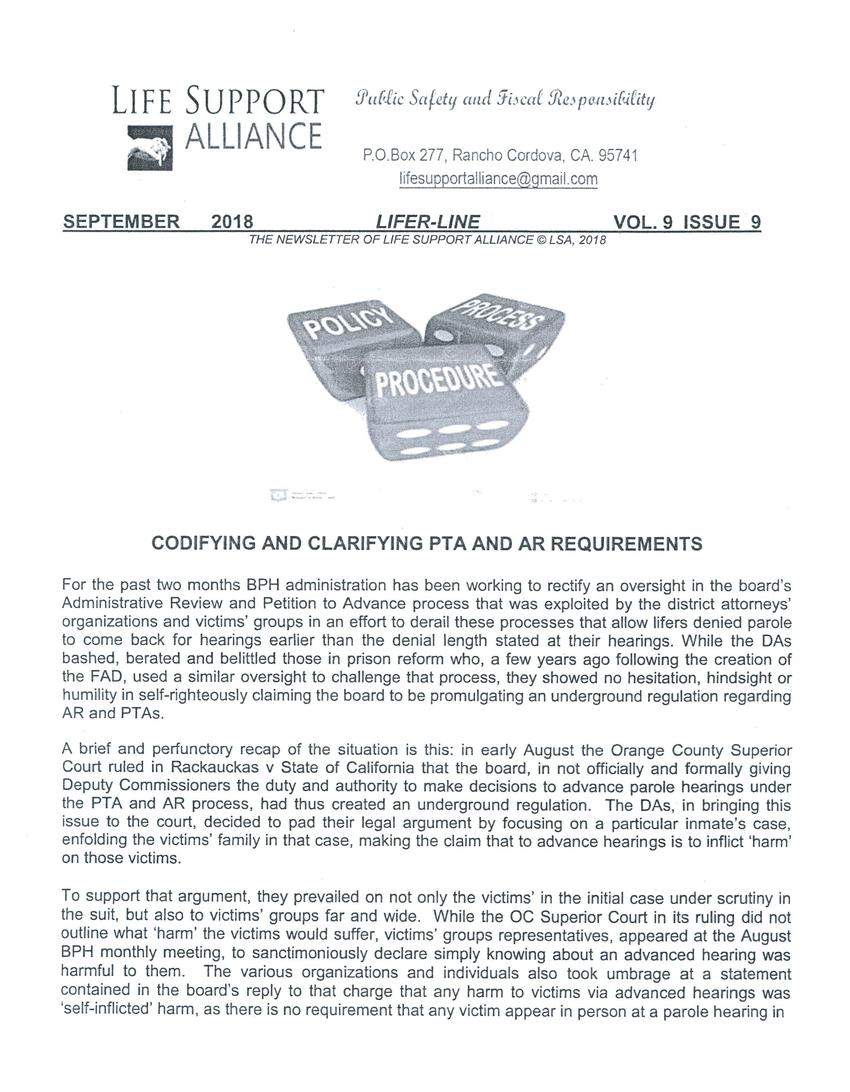
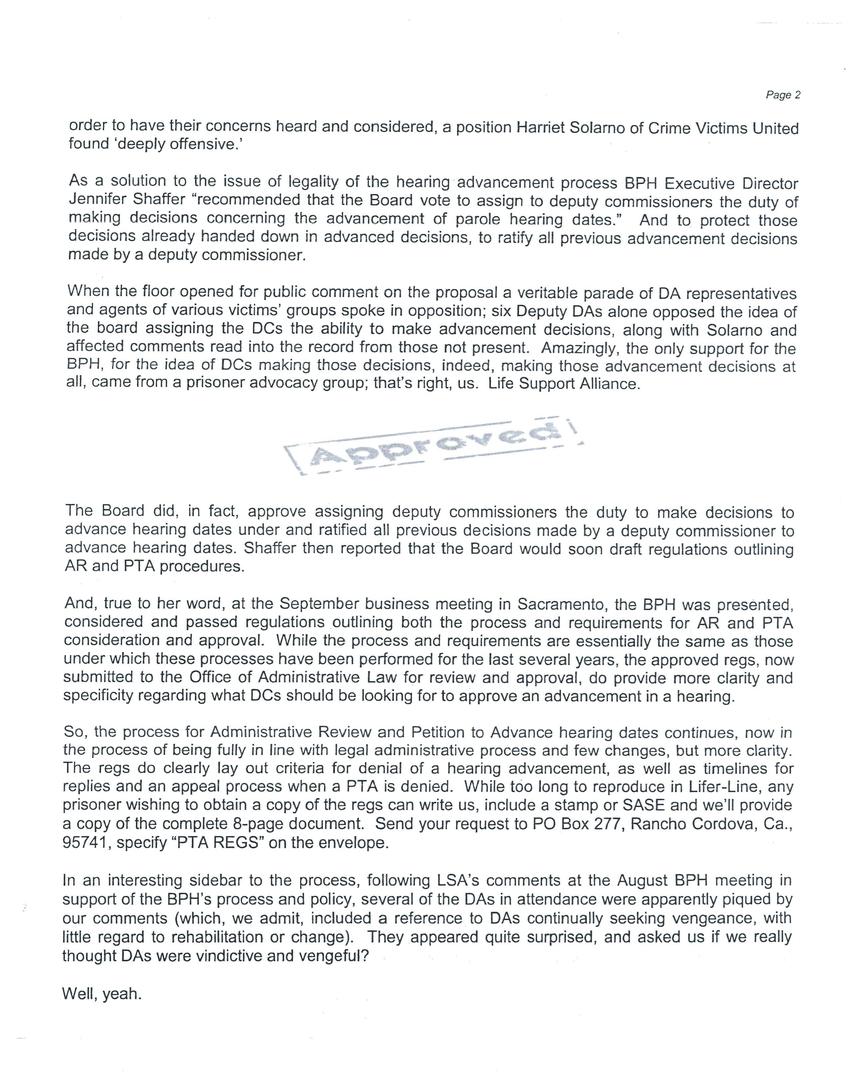
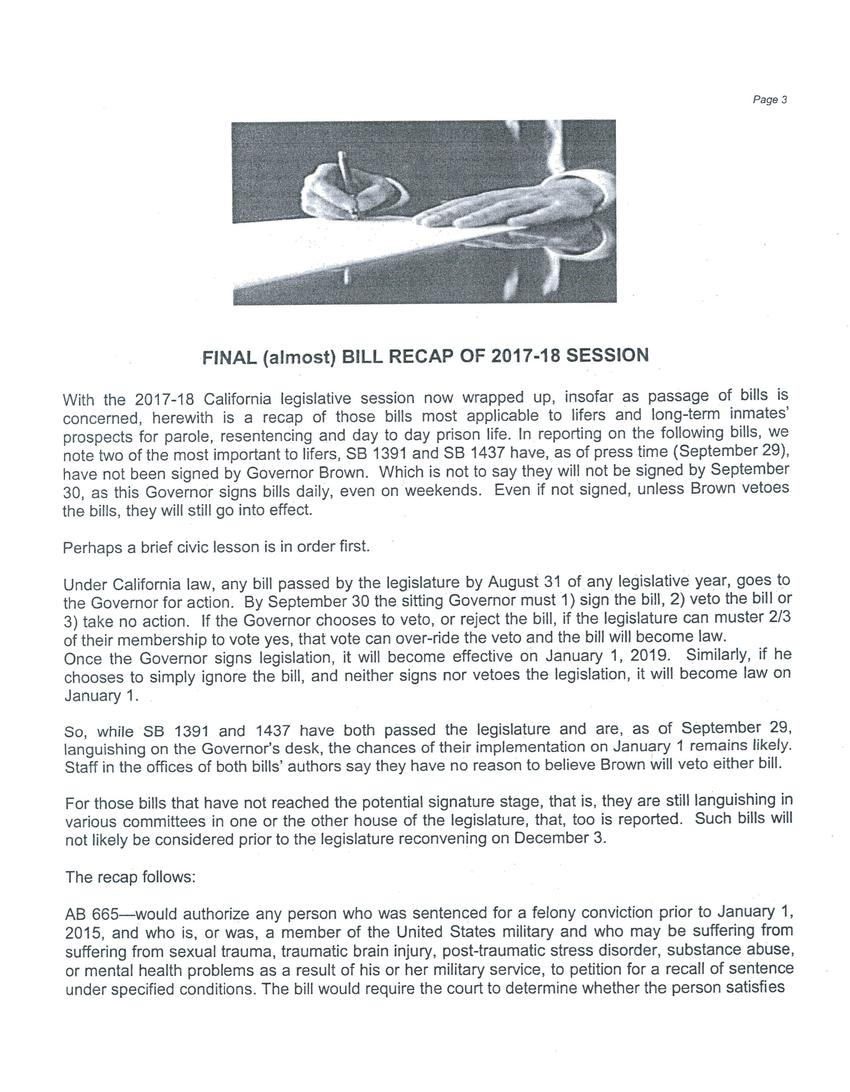
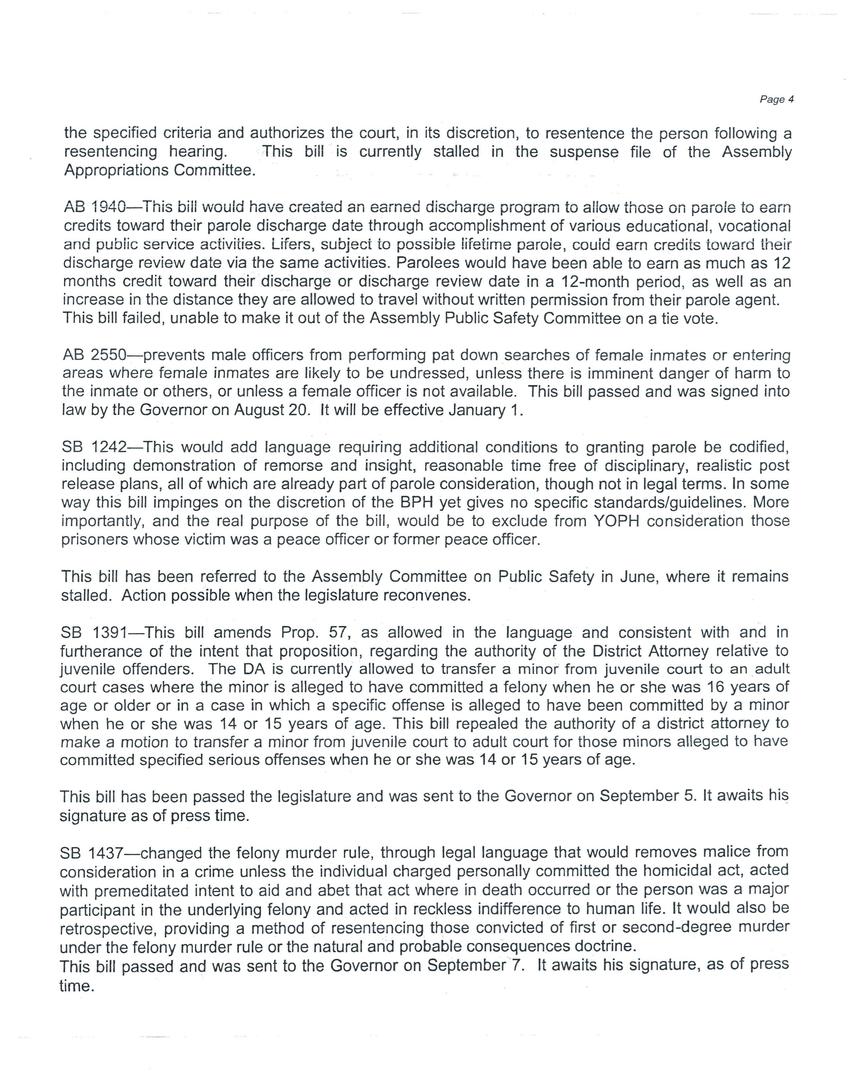
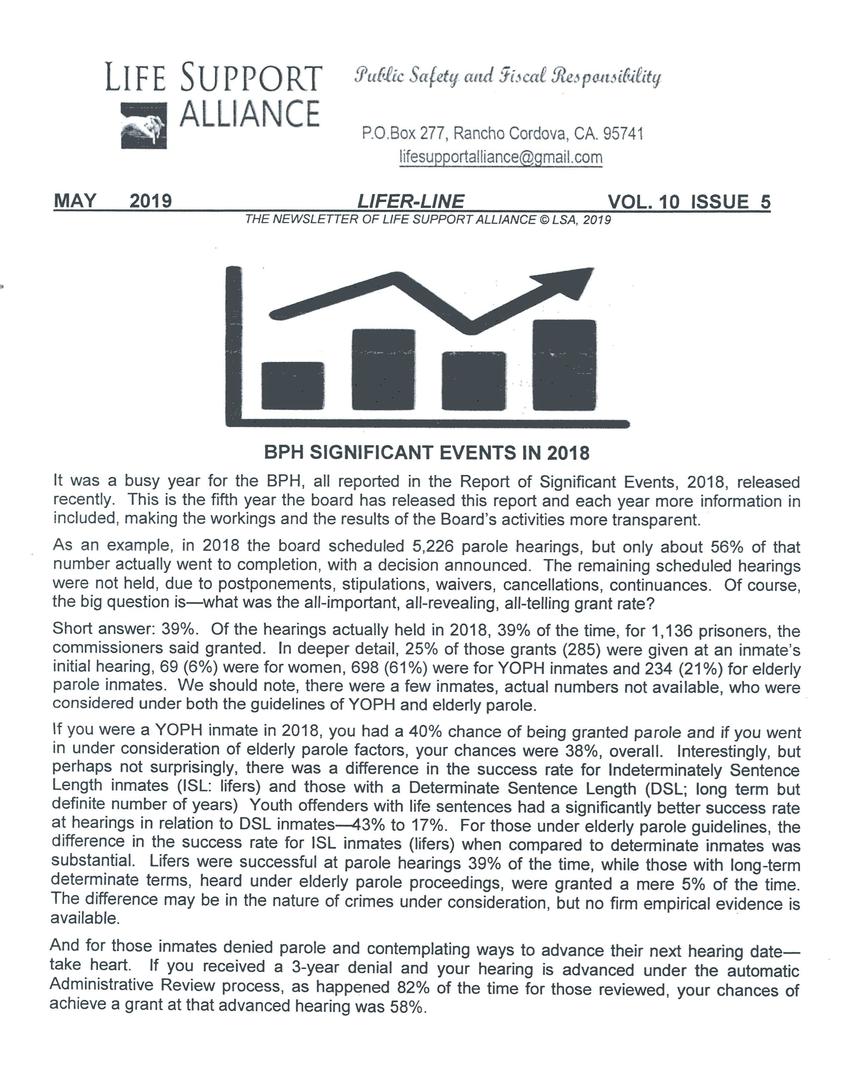
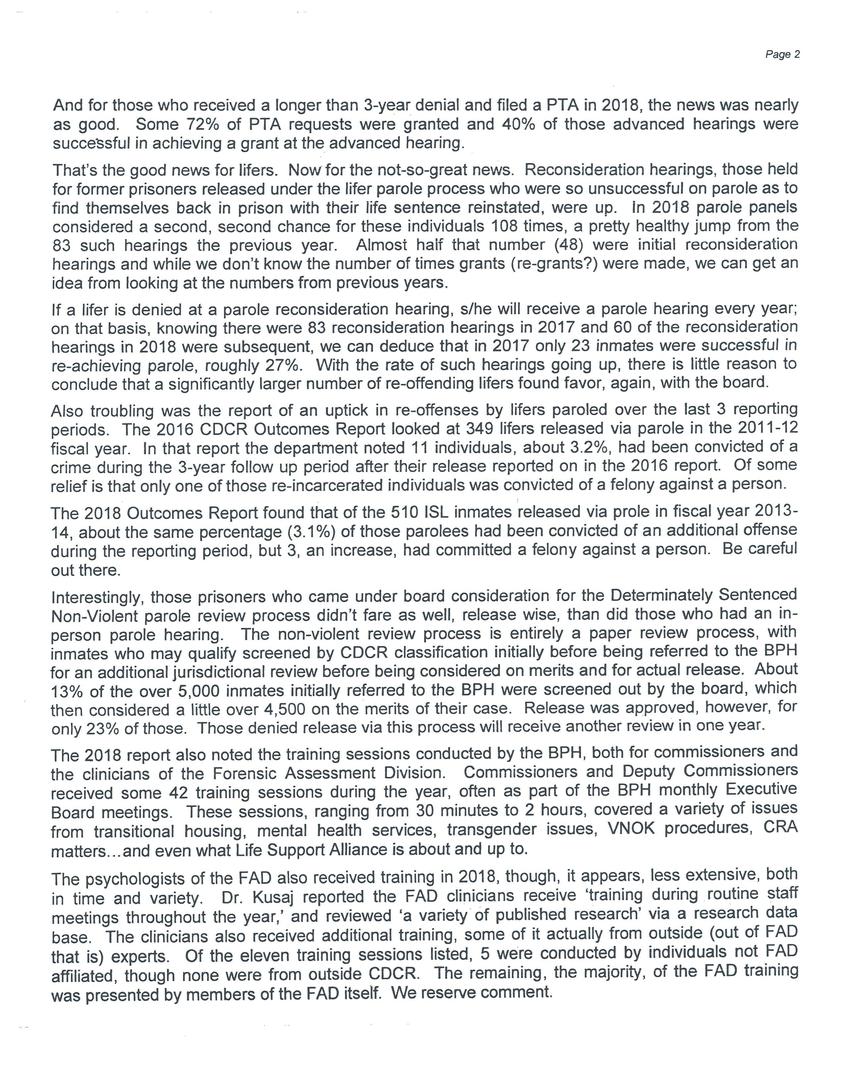

Replies